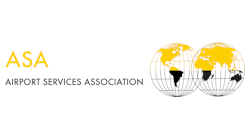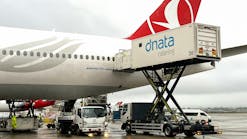As the COVID-19 pandemic wears on, all of us at Ground Support Worldwide hope that you and your families have been healthy and well.
Of course, we are all eager for this health crisis to end so that we may return to our usual routines and resurrect our industry.
In an open letter recently shared by Fabio Gamba, director general of the Airport Services Association (ASA), he notes air traffic predictions indicate we may not resume pre-pandemic levels until mid-2022. While airlines have received financial support from governments around the world, independent ground handlers – which provide approximately two-thirds of all ground services worldwide – are not currently receiving the same support.
As a result, Gamba explains, a “chicken and egg” scenario could unfold once travelers take to the skies again because airlines, airports and ground service providers rely on one another to succeed.
“With the majority of our personnel currently unemployed, it can take up to three months to (re-) hire, train and badge them. Given the financial distress the sector is in, we will not take the initiative of resuming activities without a number of guarantees, and will require that any demand from the airlines be substantiated and contractually sound,” Gambia says in his letter. “Airlines in turn find it difficult to commit. These uncertainties prompt ground handlers to be cautious and to only start effective re-hiring when they are certain their contract will be honored.”
Gamba suggests the bottlenecks created by these negotiations could slow recovery further and could “become a pretext for newcomers pretending to do the job at costs more in line with the expectations of cash-stripped airlines focusing on the restart,” prompting concerns of safety and financial viability.
To discourage ground handlers from considering extreme cost-cutting measures and potentially making concessions in the quality of their services, the ASA is requesting that governments and authorities provide support to the ground handling industry.
Among these requests are an extension of ground handling licenses, support for ground handler employment costs and specific safety requirements. The letter highlights its final request, which is an open dialogue between ground handlers and authorities, so the industry’s needs can be met.
As with most challenges, coming together to address a common problem can yield a successful result.
You can read Gamba’s letter in its entirety at www.AviationPros.com/21145526.






